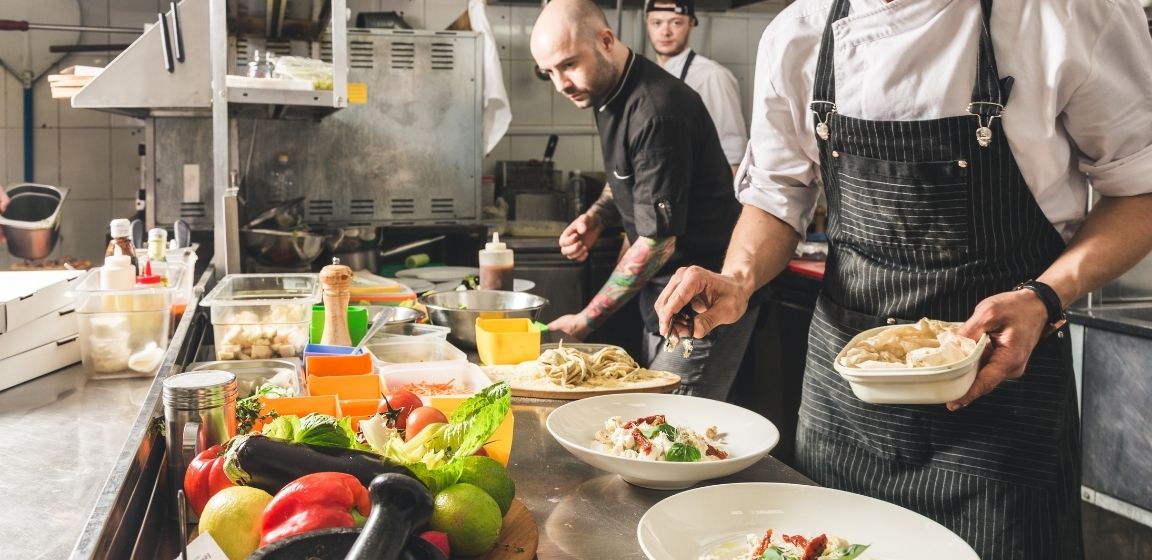Some experts estimate that restaurants in the US generate up to 33 billion pounds of food waste a year. With the restaurant industry producing that much waste, many eco-conscience restaurant owners find themselves looking for green practices to integrate into their work. Fortunately, there are many innovative ways to make your restaurant more sustainable that don’t require you to invest in dramatic remodeling. Read on to learn how your restaurant can highlight environmental responsibility.
Ladle of Contents
Upgrade Your Grilling Methods
A green solution that has gradually gained recognition from restaurants across the country is all-natural coconut shell charcoal. Coconut shell charcoal is the healthier and eco-friendlier option over lump charcoal and wood for grilling for many reasons.
In addition to being sustainable, coconut charcoal is also safer, as it’s sparkless and smokeless. We’ve included a few more perks of coconut shell charcoal for restaurants below.
- Odorless
- Produces less ash
- Lasts longer than lump charcoal and wood
- Chemical-free
Compost Both Pre- and Post-Consumer Waste
Composting pre- and post-consumer waste is a simple way to reduce your restaurant’s environmental impact. Composting utilizes the earth’s natural resources, such as microbes, fungi, and worms, to help break down waste and enrich surrounding soil.
How does composted waste differ from the waste in a landfill? Landfills cover waste in dirt and clay to reduce foul scents. The lack of oxygen leads decomposing waste to emit methane, a harmful greenhouse gas.
Composting Consideration: If your restaurant doesn’t have the space to compost, you can always entrust a compost haul-away service to take care of the waste for you.
Review Your Suppliers
Reviewing your suppliers and nixing those that partake in environmentally harsh practices is another way to make your restaurant more sustainable. It can be tough to ax a supplier that your company has used for a while, but opting for a green alternative will minimize your restaurant’s negative ecological impact. Plus, using locally and thoughtfully sourced products is something you can highlight to customers as a part of your restaurant’s commitment to social responsibility.








